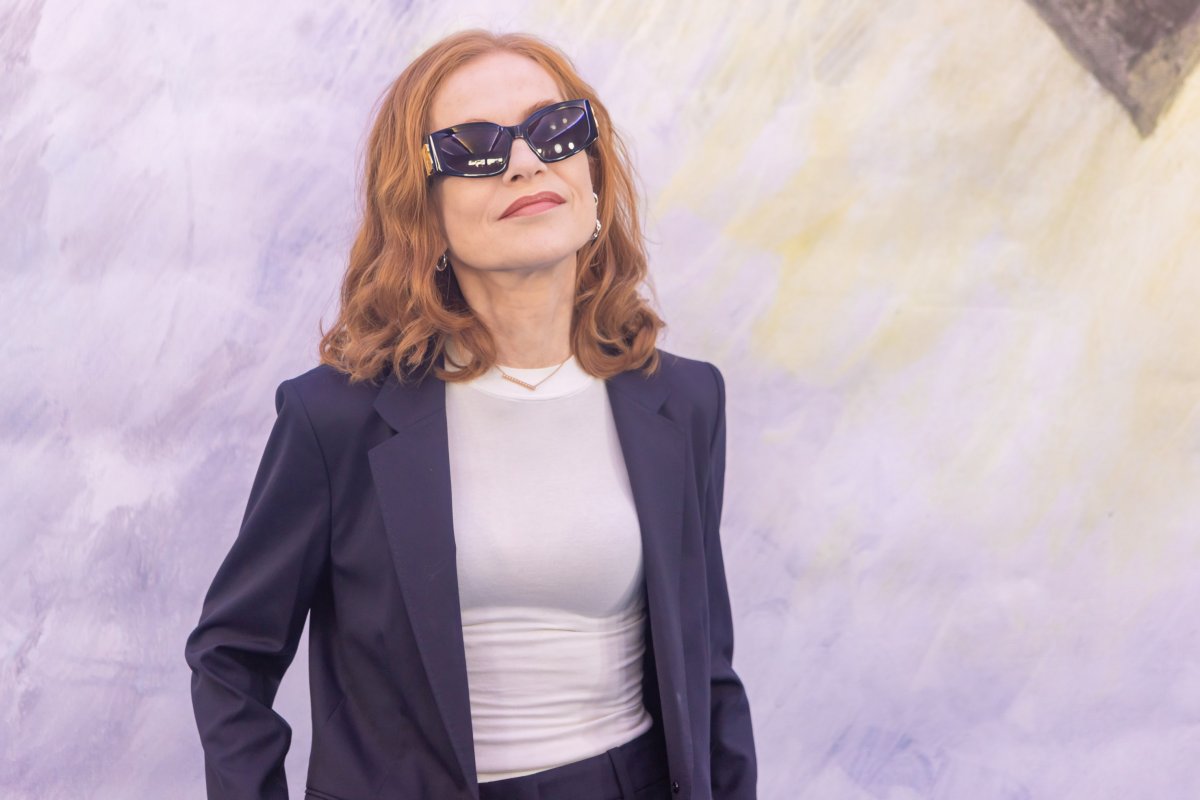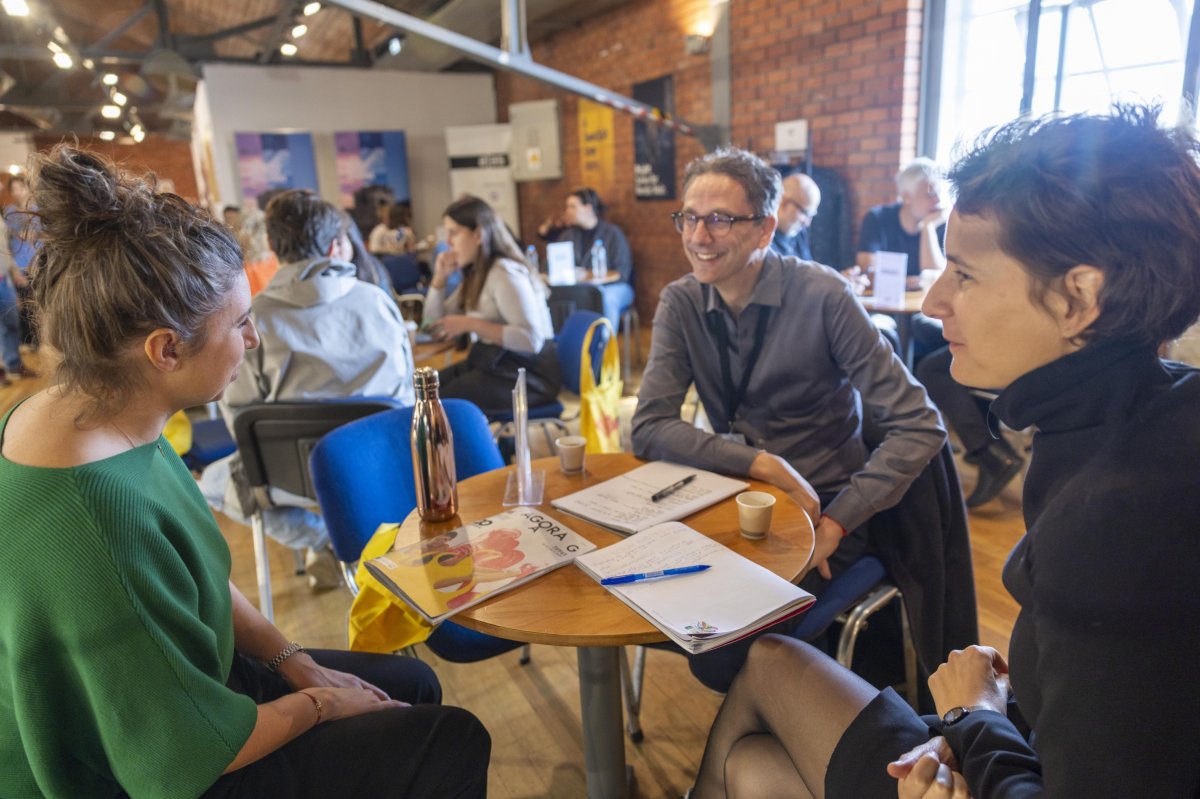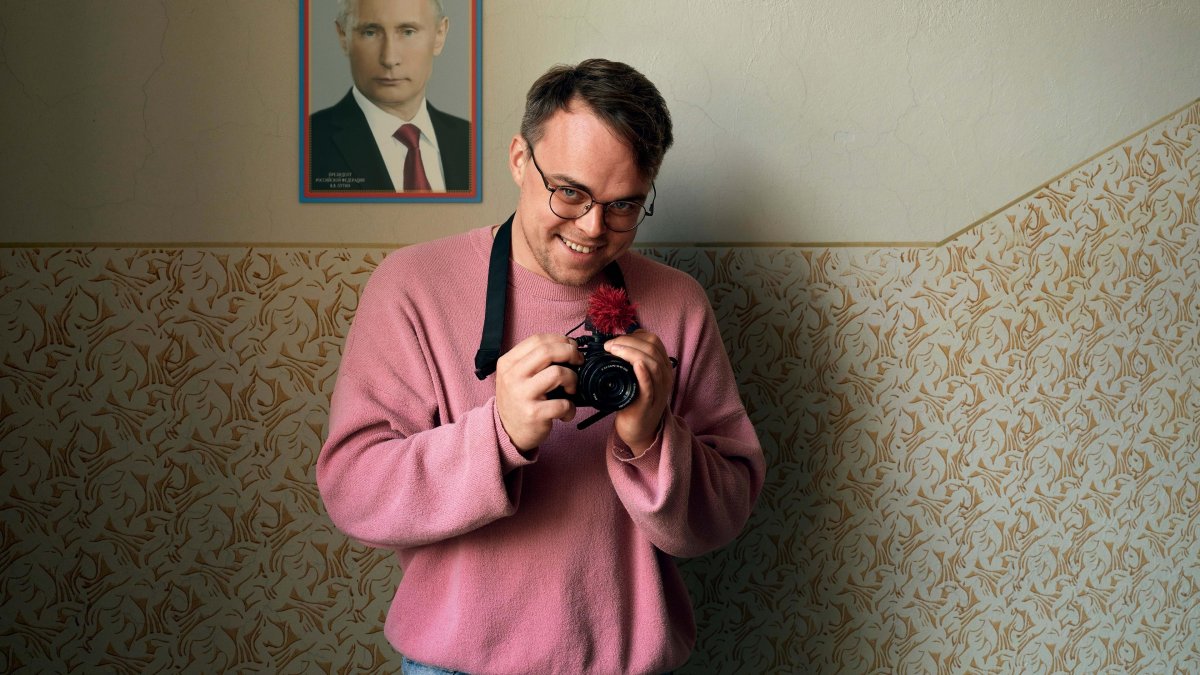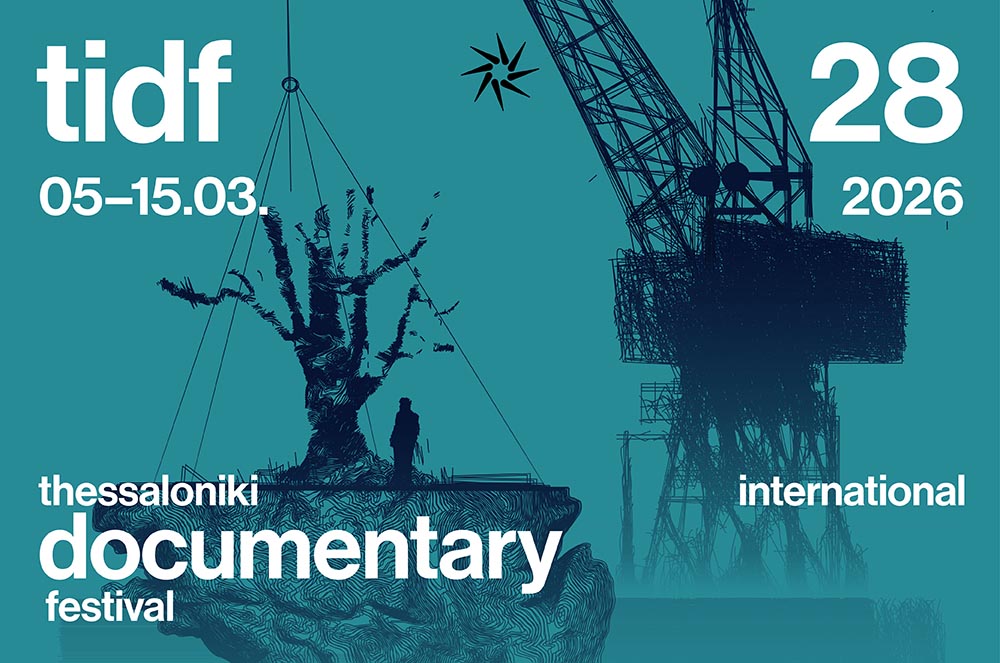Within the framework of the 66th Thessaloniki International Film Festival, the dazzling star Isabelle Huppert, the guest of honor at this year's Festival, gave a press conference on Monday, November 3rd, at the John Cassavetes theater.
Yorgos Krassakopoulos, the Festival’s Head of Programming and the press conference’s moderator, welcomed the radiant and multi-award-winning star of world cinema at the Festival. Inspired by her latest film, which will be screened at the Festival, Yorgos Krassakopoulos stated: “This is not your first time in Thessaloniki, your films have always been an integral component of the Festival. You are a truly hardworking actress. Thank you so much for coming. Your latest film, featured in our tribute, is Thierry Klifa’s The Richest Woman in the World (2025). So, I wonder whether the dozens of films you've created over the years have enriched you.” “The films I've made make me feel fulfilled. They also make me feel very privileged for the opportunities I've had to portray all these roles and work alongside such great filmmakers.”
Isabelle Huppert had an active role in the curation of the tribute showcasing her work, which is being hosted by the Festival’s 66th edition. When asked by Yorgos Krassakopoulos about the selection of films for the tribute, Isabelle Huppert replied that it was not an entirely conscious process: "Perhaps I could have chosen other films, but I believe that this particular selection provides a good overview, featuring many international directors." Regarding the oldest film in the tribute, Michael Cimino’s legendary film Heaven's Gate (1980) Isabelle Huppert recounted the following: “The shooting of this film was a truly fantastic experience; we spent seven months in Montana, US. This film is equally known for its success and failure. It was a huge box office failure; specifically, the New York Times deemed it 'an unprecedented disaster,' from which the director never really recovered. Throughout my career, I have thought about this film many times, concluding that it is an auteur film. It was a very personal film, with harsh and sharp political commentary on its time. Perhaps nowadays it would be more easily accepted," she concluded.
When asked about how she deals with failure and whether it affects her, Isabelle Huppert stated: "Of course, it affects me. We don't make films to keep them squirreled away in a room; we make them so that we can be seen by as many people as possible. Being accepted is inextricably linked to the very nature of filmmaking. However, I am just an actress in the film, and I cannot carry the entire burden of failure on my shoulders; I do not feel personally responsible for any failure.” When asked what she takes away from each role, she disclosed: "The audience often asks actors this question because they don't realize that filmmaking exists in the present, which is automatically forgotten. Once you’ve delivered your performance, it has already happened, it’s already in the past.”
At this point, Yorgos Krassakopoulos asked her a question about the demanding roles she takes on: “I do not see the roles I take on as demanding. The characters I embody have complex and controversial aspects to be sure, though, I do not believe that their idiosyncrasies make them unlikable. Once, perhaps, there were clear distinctions between good and evil, but now these boundaries have begun to blur, becoming almost indistinguishable,” Isabelle Huppert stated. Then, she went on to speak about her collaboration with her daughter, Lolita Chammah, who co-stars with her in Marc Fitoussi’s Copacabana (2010): “It was a wonderful collaboration. My daughter is here with me because she loves the beautiful city of Thessaloniki as much as I do. Copacabana is a comedy with sharp edges, subverting the equilibrium between a mother-daughter relationship while offering an insightful commentary on the disconnect between generations in quite an unexpected manner.”
Immediately afterwards, the discussion shifted to her collaboration with Hal Hartley on Amateur (1994): “Amateur is a fantastic film crafted by a talented filmmaker, blending the spiritual depth of the Bible with the light-hearted nature of a cartoon. It came after Trust (1990), and Simple Men (1992).” The French star stressed she doesn’t feel she has taken major risks in her career, but she has often found herself stepping outside her comfort zone: “I’ve always thought of filmmaking this way; I liked doing films aboard, away from my home country. The first time I felt like a true actress was when I participated in the Hungarian film by Márta Mészáros, The Heiresses. I also made a lot of films in Asia alongside Hong Sang-soo and Brillante Mendoza. Filming abroad is always a fantastic experience, because this is how you become part of an unfamiliar and foreign region. Seeing through a filmmaker’s gaze in their own country, and embodying it, is formidable,” she divulged.
She then spoke about her role in Aleksandar Petrović’s film, Migrations (1989). An incredible film with high-quality production and a powerful, resonant message, which, as she noted, “had somewhat of a bizarre fate,” due to the various hiccups that occurred throughout its production and distribution. Regarding the audience's observation about how easy and natural her acting appears in her performances, even in demanding roles such as the role she took on in Mia Hansen-Løve's film Things to Come (2016) -a philosophy professor-, she pointed out: “Embodying these characters was never difficult for me. The film you mentioned was a wonderful film full of hope. The true difficulty lies in working with someone you don’t understand or trust. This is key in the relationship, the film must be based on mutual trust,” she stressed.
When asked about the representation of women in contemporary cinema, Isabelle Huppert emphasized: “I see the situation as I saw it from the very beginning of my career. I have always been lucky and privileged. I always sought (and picked) roles with women on the forefront, not hiding behind a man but taking up the center stage. Nowadays, we have increasingly more female directors and filmmakers in general. Compared to the past, we have certainly improved, but we can do better.” Responding to a question from the audience about which director she would like to work with, she immediately singled out Alfred Hitchcock and specifically, Vertigo (1958). As for the possibility of a collaboration with Greek filmmakers, and specifically on a theater stage, she stated she had some ideas, but it was much too early to share with the audience.
Then, she answered an audience question about the international character of her career and the differences she discerns over the course of time: “Honestly, I cannot pinpoint a difference. I approach the unfamiliar with the same curiosity I had at the beginning of my career. What changed is the way that the cinematic product is now consumed: now we have so many ways to watch films. The best one, however, and the only one that should continue as is, is the big screen. Any other viewing experience is second-rate and unremarkable.” As for the roles that were a turning point in her career, she clarified that the most important ones were those that provided the greatest exposure, referring to Michael Haneke’s The Piano Teacher (2001) and Paul Verhoeven’s Elle (2016), both of which will be screened at the 66th edition, as part of its tribute to the French star. “The funny thing is that, often, certain films become hugely successful when you least expect it. This is a strong indication that films are perceived by different people in various ways,” she added.
As for whether there is enough mobilization in the film industry regarding Gaza, Isabelle Huppert said: “Mobilization is never enough, yet there is always plenty of suffering in the world.” Wrapping up the discussion, Yorgos Krassakopoulos asked Isabelle Huppert whether she still has something she eagerly awaits after such an impressive career in cinema. “I’m not waiting for something specific. I always seek the unknown. My career truly was a deep dive into the unknown; it is exactly what I seek, and usually, it is what I find,” Isabelle Huppert concluded.















